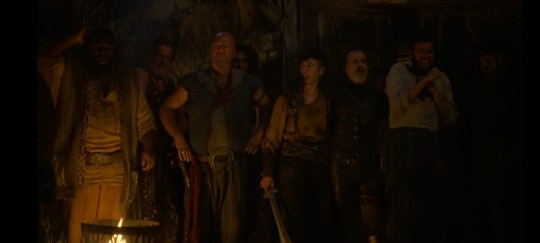#Lean on Pete
Text
'With three years of theatre in Dublin under his belt, the actor Paul Mescal only came to mainstream attention in April 2020 when he made his television debut in the hit Lenny Abrahamson-directed adaptation of Normal People, the best-selling novel by Sally Rooney. It was the most-streamed series on the BBC that year and made Mescal a household name – his role as awkward, school-age Connell earned him an Emmy nomination and a Bafta for best leading actor. In the four years since, a series of impressive parts has followed: his first feature, Maggie Gyllenhaal’s critically acclaimed directorial debut, The Lost Daughter, premiered in 2021. The next spring, he was in Cannes promoting two lead roles: in Anna Rose Holmer and Saela Davis’s indie flick God’s Creatures, set in a bleak oyster-fishing town in rural Ireland, and Charlotte Wells’s devastating Aftersun. A beautifully constructed tale of a loving but stricken young father, the latter underscored Mescal as a powerful talent with the ability to both charm and break the hearts of viewers with one downward glance – the film also earned him a nomination for an Academy Award. In 2022 he returned to theatre for the Almeida’s production of A Streetcar Named Desire, going on to win an Olivier last year for his portrayal of Stanley Kowalski.
More recently, two new films have been released: Garth Davis’s Foe, a sci-fi romance in which Mescal performs opposite Saoirse Ronan, and the gut-punching All of Us Strangers. Directed by Andrew Haigh, All of Us Strangers tells the story of Adam (played by Andrew Scott) who, upon falling for Mescal’s Harry, begins to explore a tragedy that has cast a long shadow over his life. A dizzying dance ensues between the imaginary and the corporeal, as Adam flits between dreamlike visits to his dead parents and the very visceral beginnings of a new sexual relationship – viewers leave haunted and moved.
The British filmmaker Haigh is known for his works’ intimate scale and emotional heft. There’s Weekend, which dug at real and tender spots in gay male sex and relationships; 45 Years, starring Tom Courtenay and Charlotte Rampling, who depict a couple on their sapphire wedding anniversary processing an earth-shattering secret; and Lean on Pete, a coming-of-age tale of a motherless runaway boy with Chloë Sevigny and Steve Buscemi. In each quietly vigorous work, Haigh’s incredible casting and spare dialogue enable truly believable characters to wrestle with past trauma, belonging and love.
On set for his latest lead, in Ridley Scott’s Gladiator II, Mescal Zooms from a candelabra-filled room in a sandstone palace in Malta with Haigh, who’s at home in London. Here, the pair discuss the radical tenderness of their new film and what it takes to express inner conflict with the delicate restraint they are both known for. It’s the first time the collaborators have had the chance to talk together in public about the award-winning film.
Paul Mescal: I was just hanging out with the Searchlight crew in LA and they were saying that you were taking two weeks’ respite, having gone to every state in the US for this film.
Andrew Haigh: Yes, but I have to remind myself that sometimes you make a film and nobody is very interested at all. When people do care enough to want to talk about it, then you can’t be too grumpy. It’s why we made the film in the first place, to connect with people.
PM: But it’s that weird transition, isn’t it? I imagine there are many transitions for you – the writing process into the shooting, which feels like a private experience, but then you’re making this for an audience, so once you finish filming it, it’s for public consumption. Which is the most frightening part of it. But yes, when something feels like it registers with an audience, you’ve got to run with it because it doesn’t happen all the time.
AH: It’s definitely frightening releasing the film into the world. I try very hard during the actual making of the film to forget about all the stuff that comes afterwards. It’s almost too much pressure, isn’t it? I’m sure it’s the same for actors.
PM: You almost do forget. You get into a shooting rhythm but then the hardest bit for an actor is once you’ve handed it over. I kept bumping into you in Soho during the editing and I felt like I’d given you a version of my own child and you would be like, “Yes, that was really good.” The number one rule is try to avoid your director while they’re in the edit because they’re never going to give you any information that’s going to satiate you at all.
AH: Sorry about that. [Laughs.] In truth, it’s because I’m always so nervous about what an actor is going to think of the film.
PM: Did you feel nervous with All of Us Strangers? Because from a performance side of things, I feel like it’s really strong across the four of us [including Claire Foy and Jamie Bell, who play Adam’s parents].
AH: I was never worried about the quality of the performances. You are all incredible. It’s just when you’ve made something together, trusted each other and worked so hard on something I don’t want you to be disappointed. It matters to me that you like the film. You get offered lots of roles and I always want an actor to feel like they’ve made the right choice. How did you know you wanted to do this and not do something else?
PM: Because it was the best script. It sounds basic but it goes a long way – it was the best thing I’d read in the longest time. And that’s both a testament to your talent as a screenwriter but it’s also that it just becomes immovable in my brain. Something else can come in and it might be stretching a different muscle, or it might pay more money, or it might be to work with a director I like. But this had all those things. Ultimately it was the story, and the character felt both in my wheelhouse and a perfect stretch at the same time.
AH: When I knew that you were interested in the role of Harry, I was a little bit flabbergasted.
PM: I’ve heard you say this in interviews and I’m so curious as to why because I don’t know any actor worth their salt who wouldn’t be – I’d love to know how many actors you sent it to who didn’t respond to it.
AH: Only a few. And they said no.
PM: They said no?
AH: [Laughs.] I’m not going to name any names.
PM: Did you get a flavour of why they said no?
PM: That’s why I love that part so much – because ultimately it’s a supporting part in terms of the script and what the central story is, but he’s also a supporting human being to Adam. It’s like his whole function is to put the scaffolding up around Adam to protect him.
AH: That’s a beautiful way to put it – putting up the scaffolding to help him rebuild.
PM: And then you give such amazing clues into Harry’s own world – just drip-feeding them in tiny moments. You really see that there’s almost another film to be written about Harry that mirrors Adam’s, but you have the restraint to give enough of that without taking the focus off Adam.
In general you write such actor-friendly scripts, which is why if there were a part that size in another screenwriter or director’s hands, I probably wouldn’t take it. But there was nothing about that part that felt small to me. That character has had the same impact on me as other leading roles I’ve played. That’s about the imaginative space that you allow the actor to create – it allows the audience to project.
AH: And he is so important – he’s fundamental to Adam’s change. Still, in the hands of an actor who can’t embody that character, truly understand it, then none of it works. You have this amazing ability to deepen characters – to allow us to understand that a backstory might exist, even if we don’t know what that backstory is. The minute we see you at Adam’s door I can understand the pain, the longing, the need that Harry has, all lurking between your words and gestures. That’s a rare skill. I’m not entirely sure how you do it, honestly.
PM: Andrew, it’s all there in the script. I didn’t invent anything other than the normal actor work – you gave me all the tools I needed and with such economy. Can I say that that scene is one of my favourite scenes that I’ve ever got to play in my entire life. I remember reading it and thinking that you could spend a week on that scene – there are endless alleys it could go down. And I’m so happy with how it felt – it’s the perfect blend of dangerous and sexy and sad, but it’s unclear which part of the Venn diagram it’s sitting in.
AH: And it’s such an important scene too. The film does not work without that scene landing. Although you could say that about so many of the scenes in the film. Every scene asked us all to go to some emotional places. Every scene had its challenges. Some for personal reasons and others in terms of story. When you’re working as a director, a writer or an actor, you are emotionally exposed sometimes.
I struggled a lot with that – even in the writing – how much do I reveal and how much do I hold back? There’s this Nina Simone song, Who Knows Where the Time Goes – she talks at the beginning about a quote by Faye Dunaway, who said she tried to give the audience what they wanted [in Bonnie and Clyde]. And Nina Simone says, that’s a mistake because “you use up everything you’ve got, trying to give everybody what they want”. And I think it is about trying to find that balance, isn’t it? Of, “OK, I’m prepared to give this, but I don’t want to give this.”
PM: I would forget sometimes that you conjured up these people and it is scary, in the most exciting way, to be in your company and thinking, “I know he’s hiding stuff.” Through the writing process, the shoot, the edit, were you thinking about what your lines in the sand were when it came to talking about the movie? Or is that something that came in the weeks before the press run?
AH: Yes, I tried not to think about it too much while I was doing it because it’s really dangerous when you’re making the film to think too much about how the world is going to take it and what people are going to end up asking, because I think I would close up and become afraid. But one of the things I’ve tried to understand is why do I even want to make films?
PM: Why do you want to make films?
AH: I don’t know. Most of the time it’s so painful – the stress and anxiety. But I think for anybody that works in film, there’s part of you that is probably doing it because you just want to be loved by the world. [Laughs.] And the problem is it’s an appalling industry to work in if that’s what you’re wanting.
PM: Yes, because you’ll get it one second and then you’ll lose it.
AH: I always find that fascinating because sometimes things go well and sometimes they don’t and you often can’t even understand why.
PM: What scenes did you find particularly difficult to film? One that jumps to my mind is the scene in Harry’s …
AH: ... apartment.
PM: Yes, that was one that took us ... We had to climb a couple of steps to get there. I had performance anxiety – I’d seen how beautiful your work with Andrew had been and I was like, “We’re entering the final couple of minutes of the film and if I fuck it up, it’s my fucking fault.” But it’s one of those few moments when Harry does become the focus of the film for a second.
AH: You certainly hid that anxiety well. And you nailed the scene. It’s heartbreaking. I also adore the scene between you and Andrew in the bed halfway through the film. I can’t tell you how beautiful you both are in that scene. I feel like I’ve tried to capture intimacy a lot, but there is something special going on here, the way we see you opening up to each other. It is so delicate and tender, the way you hide and reveal.
PM: But that’s what I love about the writing as well. You’ve seen versions of those scenes in films where you see a character repress or hide what he’s feeling through a smile. But the thing that is different about this scene is that there’s somebody on the other side of the bed who loves him and tells him that it’s not OK to do that. And the thing I find so upsetting about that scene is that Harry says, “I’m marginalised by my family et cetera ... but it’s fine.” And the line that devastates me is when Adam says, “But why is that OK?” It’s such a simple line.
AH: Agreed. It’s about knowing that someone cares enough about you to push a little deeper. There’s an exhalation you do in response to that question, a giggle, a gesture and then you stretch. It’s one of my favourite moments in the film. We’re so close to your face, close enough to see Harry’s mind working, asking himself if he can fall deeper into this relationship. It’s those moments I am obsessed with trying to capture. Do you plan for those moments?
PM: That’s not something I think you can prepare for as an actor. You can’t go home and do your homework and be like, “And when he says this, I’m going to stretch and make a little noise.” You just can’t.
AH: One thing that always surprises me is how you can find and sustain that feeling of intimacy with all the trappings of a film set around you. Men in shorts. Cameras in your face. I’m always amazed when actors can ignore what is going on around them.
PM: It’s because we want to be adored. [Laughs.]
AH: That’s what it is.
PM: I feel like sometimes, though, it’s blind panic. Because I think acting has the capacity to be the most embarrassing thing that any of us ever do. And it can be in an instant. I’ve seen actors that I really admire do bad, embarrassing things. When you’re in a scene where that’s heightened – say, if your body is on show or there’s an emotional weight to a scene – weirdly, if you’re working with good actors, you can just throw a bubble around yourselves and white-knuckle it. Andrew Scott is just outrageously good.
AH: And you are outrageously good together. We see you fall in love on screen. We believe every moment of it. It feels so genuine.
PM: When you feel close with an actor like that, like with Andrew, it allows a real-life intimacy and a trust that I’ve only had a couple of times – obviously with Daisy [Edgar-Jones] in Normal People, and Andrew, and Saoirse in Foe. It has nothing to do with talent. Saoirse and Andrew are actually quite similar. They’ve got this well of emotionality where all you have to do when you’re in scenes with them is sit there and listen to what they’re saying. Normally they’ll find a way to unlock you.
It sounds reductive but you don’t have to do anything when you’re working with brilliant actors like that. I would say the size of the performance in Foe is much more robust than Strangers, which is big but it’s also restrained and subdued. In Foe, me and Saoirse just had to plant our feet and really go from the gut.
AH: That’s the skill of it, isn’t it? Because you have to understand what the film needs.
PM: I’d say that there’s a similar performance style across all of your films – and that’s the one thing I love about my job, that you get to go into different jobs with different actors, like Saoirse and Andrew, and you put on different hats and you figure it out. Would you say there’s a performance style that you’re interested in generally?
AH: I’d say there is a tone to my films to which a performance style is integral. Although I’m not very good at being able to articulate what that style is. I guess actors will have watched my films before they want to work with me, so instinctually understand the timbre of the performance I like. We usually don’t need to talk about it.
PM: We never actually spoke about it.
AH: But I think that’s the joy of when you’ve made a few films. You can have a reference of what you like. That’s why our choices are important. The choices we make define the kind of person we are. That’s why I wanted to work with you so much. The projects you choose are always interesting. And you’ve had a crazy few years. How does that feel?
PM: It’s a hard question ... Because I never expected this to happen. I had ambitions, of course, but I could never have expected that this would be where I was going to land. Being in drama school, I remember teachers telling me the statistic was something like “only 16 to 20 per cent of you will ever work as an actor”. So I remember getting my first job in theatre and thinking, “That’s it. Somebody has decided to pay me to do the thing that I love.” And then fast forward five years – it’s the thing that I love most in the world and I’m getting to do it with directors that I admire greatly.
I’m learning, though, that there’s only so long I can continue going at this rate before it starts to take away from my life – but right now is the time to put the foot down and really work hard.
AH: And now you’re doing your first huge movie.
PM: Gladiator comes across your desk and there’s no way you say no to it. But with this scale of film, and to work with Ridley Scott, it’s a no-brainer. Up until this point there have been very few larger films that remotely interested me.
AH: But this is Gladiator. This is not your average blockbuster.
PM: It feels really right. And also there’s the capacity to learn. It’s the first time that I’ve felt a pressure of, “God, I’m worried about box office receipts.” It’s a different metric. But Ridley shoots at a very different rhythm – he’s quick and it’s kinetic and wonderful. He knows exactly what he wants. It honestly reminds me of sport in a way that is really satisfying.
AH: Plus you get to dress up as a gladiator.
PM: We left that point out. That’s the best bit.
AH: You’re going to make a lot of people very happy!'
#Andrew Haigh#All of Us Strangers#Foe#Gladiator 2#Ridley Scott#Paul Mescal#Normal People#Sally Rooney#A Streetcar Named Desire#Saoirse Ronan#Andrew Scott#Maggie Gyllenhaal#The Lost Daughter#Weekend#45 Years#Lean on Pete#Claire Foy#Jamie Bell#Nina Simone#Who Knows Where The Time Goes#Daisy Edgar-Jones
7 notes
·
View notes
Photo
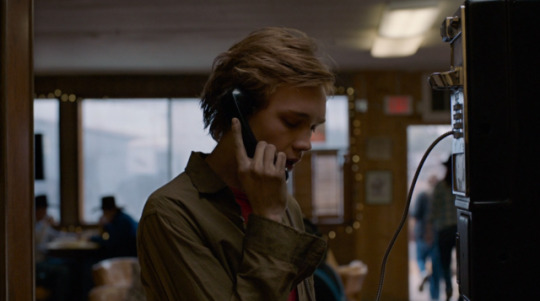
Lean on Pete (2017) dir. Andrew Haigh
45 notes
·
View notes
Text
Why does the Academy Awards never acknowledge Andrew Haigh's existence?
4 notes
·
View notes
Photo

Charlie Plummer
#charlie plummer#wildflower#ethan#spontaneous#dylan#looking for alaska#miles 'pudge' halter#lean on pete#charley
10 notes
·
View notes
Text
https://traveloregon.com/things-to-do/culture-history/filmed-in-oregon/location-lean-pete/
Lean on Pete was filmed in Harney County in 2016. Locations include the Harney County Fairgrounds, Wrights Point, and the Apple Peddler among other locations.
#oregon#eastern oregon#harneycounty#the great pnw#the old west#oregonoutback#pnw#oregon outback#burns oregon#harney county#hinesoregon#Hines#film#Lean on Pete#Oregon film trail
2 notes
·
View notes
Text
Horse Mysteries Season 3 Episode 7
This week Lezah and Dave discuss their favourite (and maybe not so favourite) horse movies and ask the questions: what makes a good horse movie; what horse movies would the hosts recommend; and what horse movies should they watch?
Horse Movies!
Hello, horse fans and mystery fans and horse mystery fans!
This week we hope that you’re also movie fans as Lezah and Dave discuss their favourite (and maybe not so favourite) horse movies.
As people who are and have been closely involved in the world of horses and the horse industry, Lezah and Dave bring a different viewpoint to these films – seeking an accuracy that is beyond…

View On WordPress
#Buck#Harry and Snowman#Jockey#Lean On Pete#National Velvet#Sea Biscuit#Secretariat#The Horse in the Gray Flannel Suit#The Rider#Unbranded
0 notes
Text
Film Journal
“Lean on Pete“ by Andrew Haigh

0 notes
Text
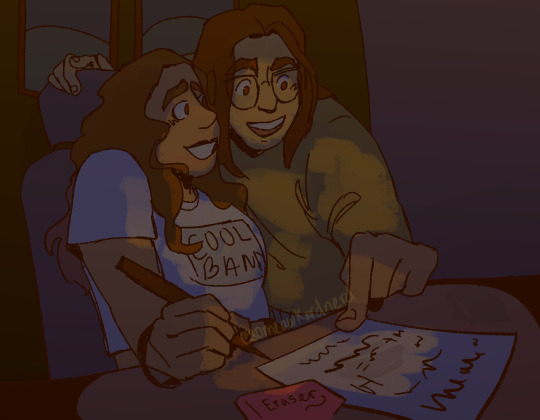
late night studying <3
#i just think that.. pete leaning over steph to check over her hw....#steph absolutely smitten and basking in the closeness and pete completely oblivious and totally focusing on complimenting her math skills#theyre in love your honor#npmd#nerdy prudes must die#team starkid#starkid fanart#lautski#stephanie lauter#peter spankoffski#hatchetfield universe#hatchetfield#hatchetverse#fanart#my art
444 notes
·
View notes
Text
when patrick decided pete just wasn't close enough.
271 notes
·
View notes
Text
'What happens when we bring together two of the most prestigious male actors of the moment, who have participated in series and films that are among the best of recent years, with a director with an impeccable career? Well, one of the best films that we are going to be able to see this year in theaters is born , a waste of sensitivity and emotions on the surface: Unknowns .
In Strangers we will witness a love story, the one that is born between Adam ( Andrew Scott , the priest of Fleabag and also screenwriter of the film, based on the book 'Strangers' by Taichi Yamada ) and Harry ( Paul Mescal , protagonist of the wonderful Aftersun ), both neighbors of a practically empty building. As the relationship between them strengthens, the ghosts of the past haunt Adam, who decides to return to his birthplace. To his surprise, his parents (played by Claire Foy and Jamie Bell ) are still living there, just as they were when they died , 30 years in the past.
A drama with fantastic overtones that many have hailed as one of the last great masterpieces of cinema and directed by Andrew Haigh , a British director who has such highly recommended titles as Lean on Pete (2017), 45 Years (2015) or the HBO Max TV series Looking . Below you can read a full Haigh conversation to which SensaCine has had access . In it, the director tells a little more about his new film, whose theatrical release will take place tomorrow, Friday, February 23.
This film has been an intensely personal journey for you. Now that it's coming to an end, how do you feel?
Andrew Haigh: I feel good. When the end comes, you want the end to be the end and move on to the next project. In this case, it has taken its toll on me, for better and for worse. But in a way it's what you need, because otherwise you don't really get involved. So I'm happy. I am satisfied with the result of the film.
What did you think of the book?
AH Blueprint sent me the book quite a while ago, about six years. They asked me to take a look at it and give them my opinion. I later learned that several people had tried to adapt it over the years. Apparently, many directors tried, but the project never came together. I think that's because there is a central idea in the book that is very interesting: meeting your parents again and having them be the same age as you . It's a fascinating idea.
For me, the key was to take ownership of that idea and incorporate it into the story I was trying to tell. I think anyone who's read the book would say the movie is quite different. The original story is a more traditional Japanese ghost tale. And I wouldn't dare say that this movie is exactly a ghost story. I've turned it into something else and that's what I wanted to do. I wanted it to have a life of its own and be original. I wanted people to not know for sure what was real and what wasn't , but I still wanted everything to seem real. Are they ghosts or are they not? The better question is whether that matters. And in my opinion it is unimportant and that was my intention.
I also wanted to use the story to explore parenthood and parental love , as well as the love within a relationship and how they are linked. How you learn about love from your parents. And I wanted to explore how easy it is for the world and growing up to hurt you. And talk about finding a way to close those wounds.
Not only did you shoot the movie in the place where you grew up, you literally returned to your childhood home to make it your mom (Claire Foy) and dad's (Jamie Bell) house. Plus, Adam (Andrew Scott) is a screenwriter and he's gay. To what extent is the fictional marriage autobiographical in the film?
AH It's a complicated marriage. It is not autobiographical. My parents didn't die in a car accident. That's not my story. However, there are many other personal things in this story . Many of the feelings and what is talked about are tremendously personal. It's about someone who grew up in the '80s and how that time was very different if you were gay.
That aspect is part of the story and I wanted to explore how that complicates the notion of family; how parenting is complicated by having a gay child and his parents not knowing what that child is really like. It's a complicated topic for many families, even today.
It became personal while I was writing it because I felt like I understood a lot of things. So I started imagining a story that took place in the house I grew up in. And then I thought, "why not try to shoot there?" I guess I'm a bit of a masochist, so I wanted to delve into my life a little and see what it would feel like to go back to my old house and shoot a movie that has a lot to do with me . The truth is that I don't know if it was a good idea for my mental health.
Did you have any difficulties filming at home?
AH Actually, the owner was very understanding of us and knew that we used to live there. I moved out of that place when I was about six or seven, but there had only been one other owner since then. Much of the house hadn't even been renovated since then, so it was like really stepping back in time . It was an unusual experience shooting a scene with Andrew Scott in my old bedroom. Having a version of myself in bed with parents who aren't my parents, but could be seen as a version of my parents, in his actual bedroom was very strange. It was unusual.
Did you find a sense of catharsis in writing those conversations between Adam and his parents?
AH There was definitely catharsis. I feel like for a lot of queer people those conversations were a trauma that they had to go through. It's very easy to pretend it wasn't, but for many of us it was. It was a very difficult thing, especially back in the 80s and 90s, but still today; Let's not pretend that now is perfect for everyone. I think it is very difficult not to be like your parents when you are a child ; feeling that your parents are fundamentally different from you. I wanted to explore that in the story, but also how we felt back then, when we knew we had to tell people who we were; that is still within us. We keep it inside. That doesn't suddenly go away when you come out; He always stays there and finds ways to escape.
Anyway, I don't understand the idea of coming out just once . You do it every day, when you take a taxi, when you start a new job. I'm publicly gay and I realize I have to keep coming out to people all the time. And that is exhausting. That's what he wanted to talk about, about how the pain he felt at losing her parents mixed with the trauma of knowing that they never knew who he really was. I wanted to delve deeper into the connection between those two things.
How would you describe your collaboration with Andrew Scott on this project?
AH There is nothing more cathartic and liberating than sharing something difficult . That's why going to a gay club can be so shocking when you first come out. It's as if all gay people go through a more or less similar experience. It's really cathartic and liberating to talk about those experiences with someone else who has experienced them, because we spend our lives trying to pretend that we're over it and that we're all great, that everyone loves us, hooray!
I love having those conversations with people. I think Andrew really liked it too. And it's amazing how that can positively influence the project. Because it's about both Andrew and me, my partner and many people I know . I would say it's autobiographical because it talks about what a generation of people have felt instead of just being about me.
In your opinion, what role does Harry (Paul Mescal) play in the film, as someone who represents a younger generation than Adam?
AH I think the friends I have in their 20s and 30s are a different breed of people. They have had a very different experience and they make me feel like an old man they can't even understand. Our experience is very different, but we quickly realize that deep down we are more or less the same. It's true that things are different for younger people now, but you are still different in the eyes of the world and you must continue to deal with that difference.
But the most important thing is that you will always be very different from your parents on a fundamental level, and that happens with all of us regardless of our background or sexuality. So it's always difficult. I know younger people who have found it very difficult to deal with this issue and who have gotten into all kinds of situations in which they come to think that not everything is as beautiful as they paint it. There are a lot of things still happening that make it difficult. So I like that they are from a different generation in many ways, but that, despite that, they understand each other when they start talking and being honest with each other.
Your parents make your life impossible and we will continue to make life impossible for our own children . It is something that cannot be avoided. It was very important to me that the film not judge parents for the things they say or their attitudes. People act the way the world tells them to act and we are all generationally different from our parents. In a sense, Harry also represents that kind of generational difference for Adam.
On the set, it seemed like you were setting up the scenes with the actors. For example, in the restaurant sequence with Adam and his parents. It was interesting to see how the shots evolved in collaboration with the cast. How important is it to leave space for that type of collaboration?
AH I love doing that and I think it happens in most scenes and really with anything that has an emotional scope. It takes time to get to that. I don't rehearse in a traditional way. I don't like to rehearse . I just want to see what happens in front of the camera and I'm always looking for that moment that feels authentic in the film. Something that does not seem studied, but rather that it has emerged that way. Sometimes you have to overcome a lot of things to get to that moment. Sometimes it's necessary for people to cry their eyes out before we get to that. And on other occasions it happens sooner. You never know when it's going to happen, so all you hope for is to have enough time for it to happen.
When you work with actors like Andrew, Paul, Claire and Jamie, you know what will happen . And when it happens it will be beautiful and very special. You just have to create an environment that allows it to happen.
You started your career in the publishing sector and I know that you have collaborated on several occasions with Ridley Scott , who has a unique style of working. I wonder if with those collaborations you learned the language to create those moments.
AH Ridley shoots with five cameras and it's amazing to watch him work. I don't know how he manages to keep it all in his head. I couldn't stand it. But it is true that he creates an environment that allows magic to arise. You can do that with five cameras and do it quickly and surprisingly, but I look for a different way to do it which is to give the actors an emotional space that they can play with. It is very difficult. I can't stop thinking about it because there are a lot of moments when you get on set and think, I'm not sure I know what I'm doing right now. And that happens every day. Then you play the scene as it is written and you think, “But how is this going to work?”
You have to trust that if you have chosen the right people and have the right conversations with them, something will happen that will create something. I guess that's what gives me strength to keep going. I always try to find something different in acting and when I look at my films it seems to me that many of the performances I have captured have been different from what actors usually offer and I like that. When I watch this movie now, I see things in Claire, Jamie, Andrew or Paul that I haven't necessarily seen in other performances. That excites me, because I feel that a magic has occurred that makes me feel something different.
How did you begin to assemble the cast so that the different members fit together?
AH You always have an idea of the type of people you want and the actors who might fit. It's complicated because you have to take into account who is available, who wants to do it, and who you would like to do. That is the harsh reality when it comes to casting. I knew it was going to be difficult to make the relationship between this older man and his younger parents believable . I needed a partner who was credible.
But when you see Claire and Andrew together, they really fit together. It may seem strange, but it works. For example, I wasn't surprised that Claire's family was Irish. And the same thing happened to me with Jamie and Andrew. You're just playing with these ideas, and apart from the fact that I've liked those two actors for a long time, there was something extraordinary about pairing them with Andrew. Furthermore, we have seen Jamie grow up in front of the cameras. We knew him as Billy Elliot , and now he plays the father of someone who, at that age, you get the feeling that he wasn't much different from Billy Elliot .
I like the background that the actors bring to the screen. You cannot eradicate the memory of other roles they have played. That's impossible. I accept it naturally. Claire burst onto our screens playing Queen Elizabeth II [in The Crown ] and here she is a mother living in a suburban neighborhood, and worried about her son. And that difference is very interesting.'
#All of Us Strangers#Andrew Haigh#Andrew Scott#Paul Mescal#Jamie Bell#Claire Foy#Taichi Yamada#Strangers#Looking#Lean on Pete#45 Years
3 notes
·
View notes
Text

we solemnly swear we're up to no good
#kinnporsche the series#kpts#vegaspete#this is about as done as it gets#its not done-done BUT I AM. its been a wip for like a year ITS TIME TO MOVE ON!!#also i had no plan for it other than vegas leaning his head on petes and i got that across so JOB DONE! SEND IN THE NEXT ONE!#i am proud of myself for coloring it though :)#like i DO NOT like to color stuff im bad at it and its fun only 10% of the time so naturally i dont do it much#the inking was the most fun even if it took an insane amount of time
220 notes
·
View notes
Text
andy and joe’s escalating affection in the group photo the last few nights has been such a fun saga i hope they do it more
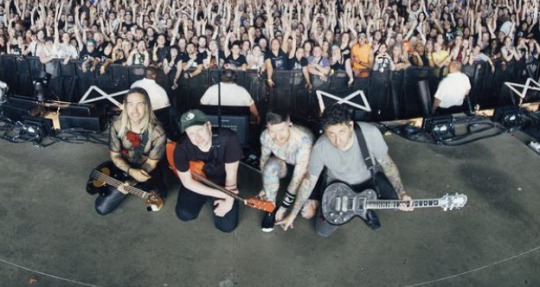


#three shows from now they will be straight up smooching calling it now /j#also dragging patrick into the last one + reaching over to touch pete’s shoulder what ever#fob#ALSO PETE’S FULL BODY LEAN TO BE WITH ALL OF THEM SHUT UP
419 notes
·
View notes
Text

i’m sorry who the fuck are these fine ass hip and trendy middle aged men
#i need to be alone#they’re so hot i’m ill#pete wentz#patrick stump#THE WAY HES LEANING ON PETE okay i need to go to bed#fall out boy#fob#peterick#p2
167 notes
·
View notes
Text
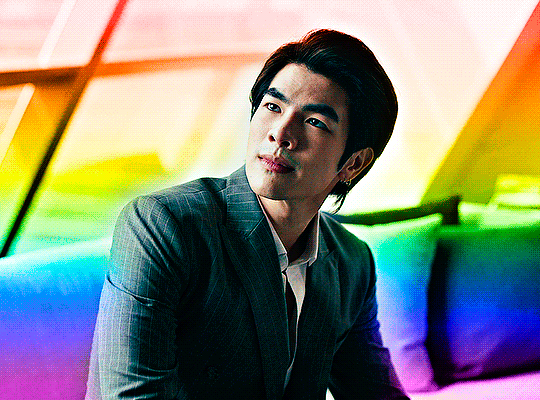
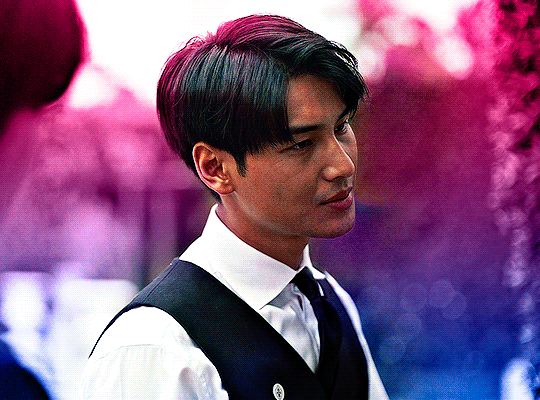
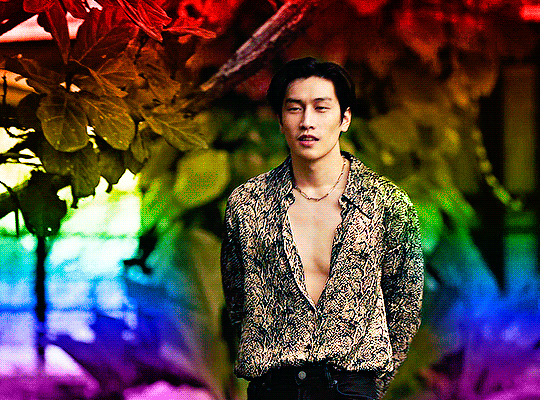




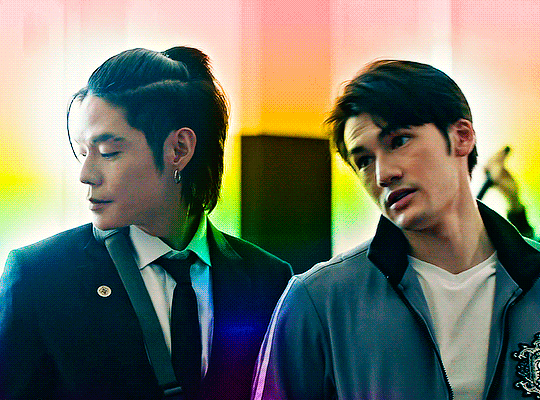



Pride Month Celebration: KinnPorsche characters + their flags
(Kinn - gay; Porsche - bi, Vegas - gay; Pete - demisexual/romantic; Kim - demiromantic; Chay - gay; Tankhun - gay; Big - gay; Ken - queer; Yok - transgender; TimeTay - gay; Tem - queer; Tawan - gay)
#kinnporsche#kpedit#pride edit*#mygifs#mine#lgbtq#pride#pride 2023#userboots#taggingmarion#userspicy#usermor#kiwitracks#ondreamytracks#kinnporschesource#these are either canon or headcanon#Ken slept with Vegas okay we all agreed on this one year ago#i see Pete as homo leaning demi
346 notes
·
View notes
Text
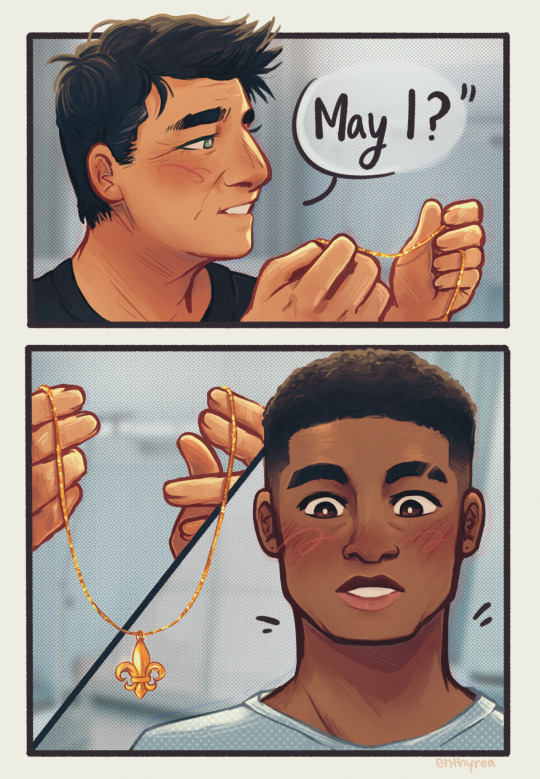
“I do,” Mav says, “May I…?” He holds the clasp and hook of the chain up, like he wants to put it on for Javy.
“Oh–“ Javy registers that that is exactly what the captain is intending to do– “yeah– yeah of course, thanks.” He shifts over in the bed, letting his legs swing over the side and leans closer to the other man, ducking his head slightly.
Maverick’s hands come around his neck, calloused fingers that have seen years of flying brushing against his nape and the curls at the base of his skull. Javy doesn’t dare look at the man– doesn’t dare to even breathe– just waits until he hears the hook click shut, terrified of interrupting this.
FIRST CHAPTER OF MY MAVCHADO FIC IS UP!!! this has been a long time coming for me and i'm so so so excited to get into it after six months of being head over ass for this silly ship. please do check it out!
read it here: something comforting
more chapters (and accompanying art) to come :3
#enthyrea art#enthyrea fic#mavchado#this fic has been so much fun to write already.#i am really leaning into character study so please do check it out#i cant WAIT to get into the nitty gritty for it#top gun maverick#top gun fanart#top gun#pete maverick mitchell#javy coyote machado#maverick mitchell#coyote machado#top gun coyote#maverick x coyote#coyote x maverick#top gun fanfic#top gun fanfiction#top gun maverick fan art#top gun maverick fanart#top gun maverick fanfiction
111 notes
·
View notes
